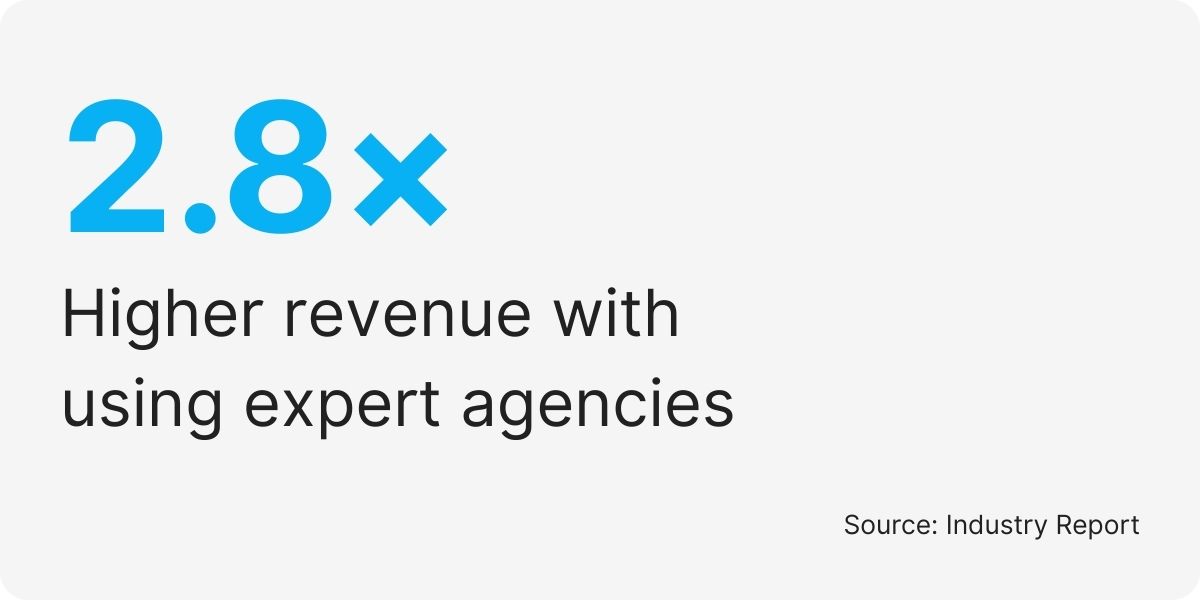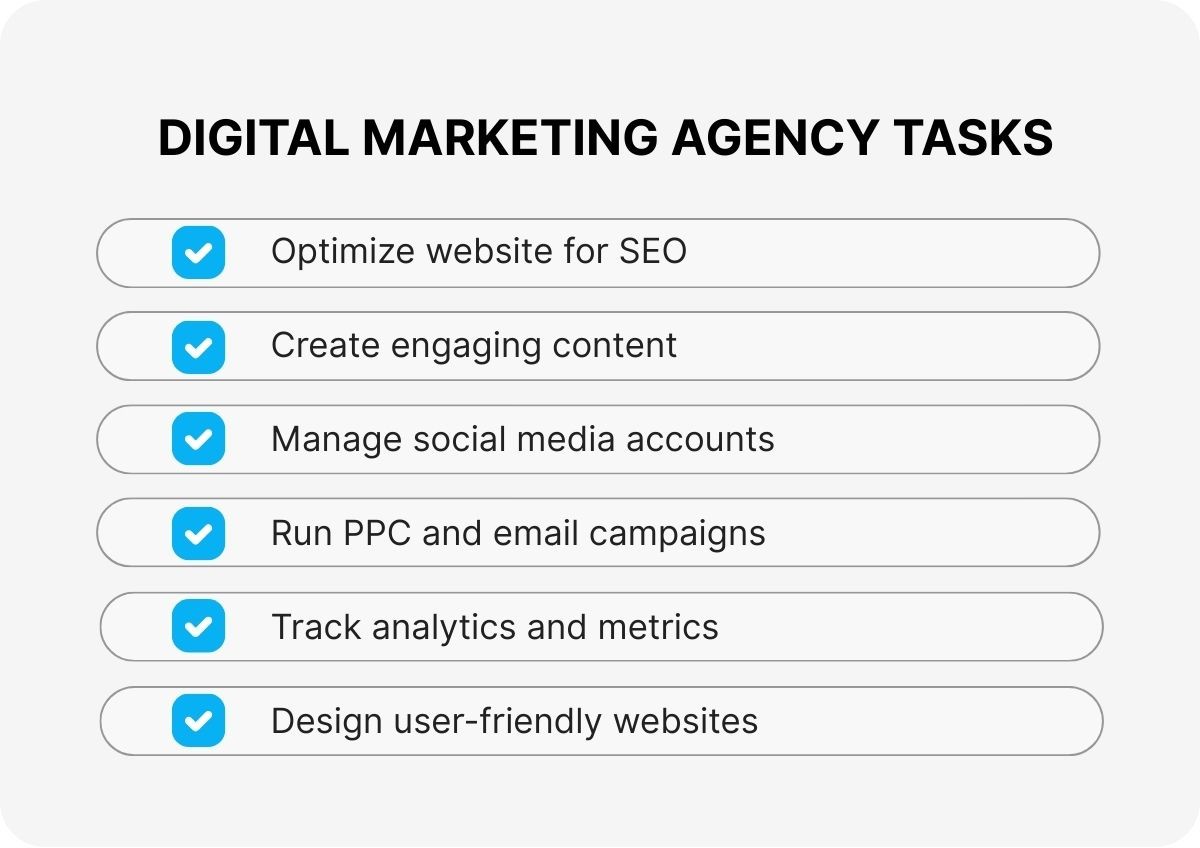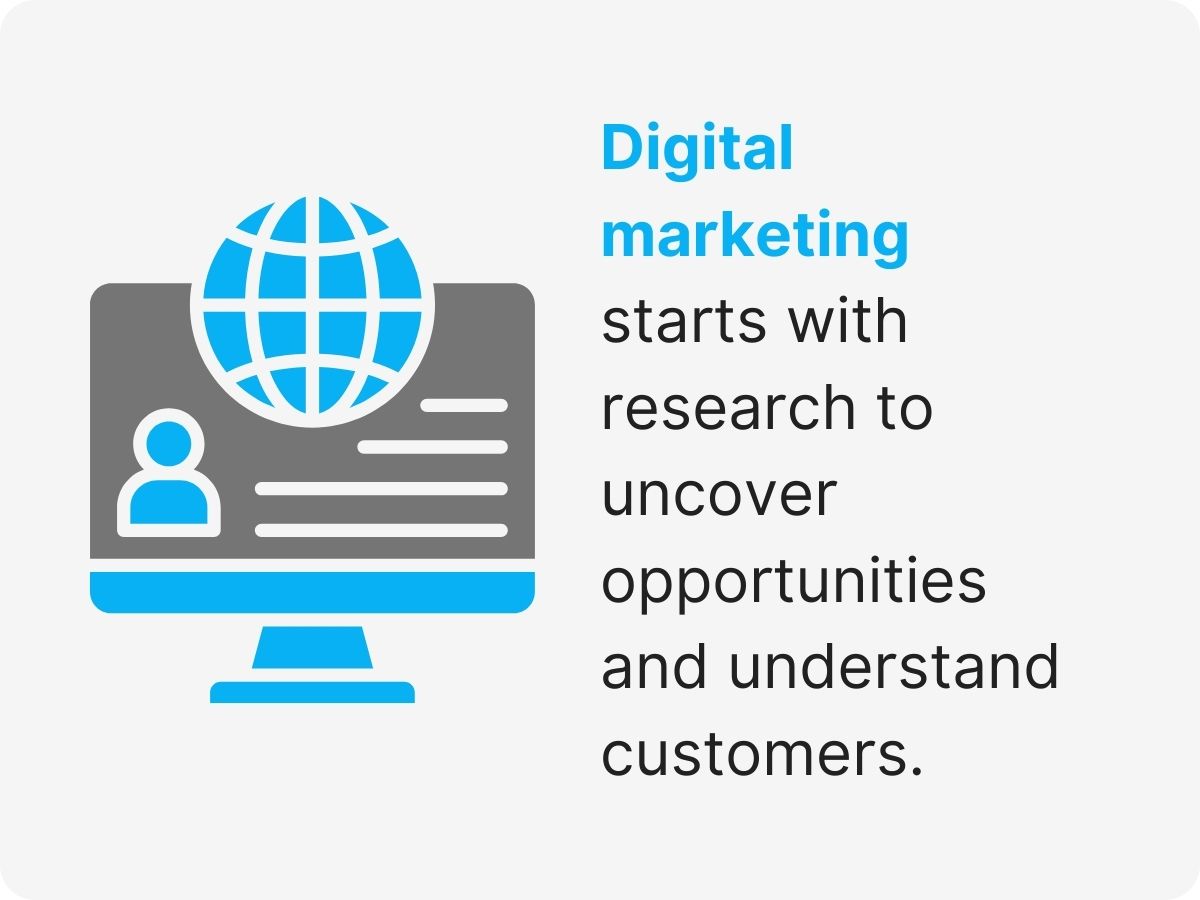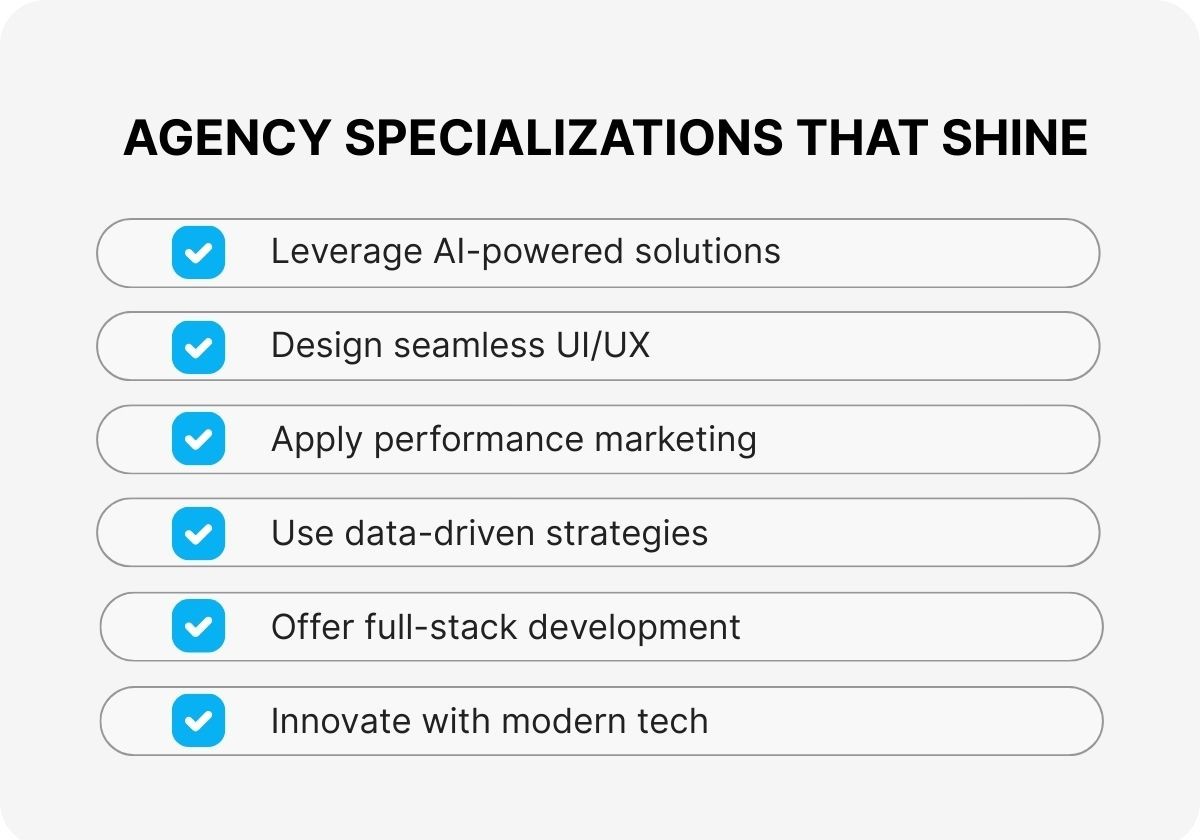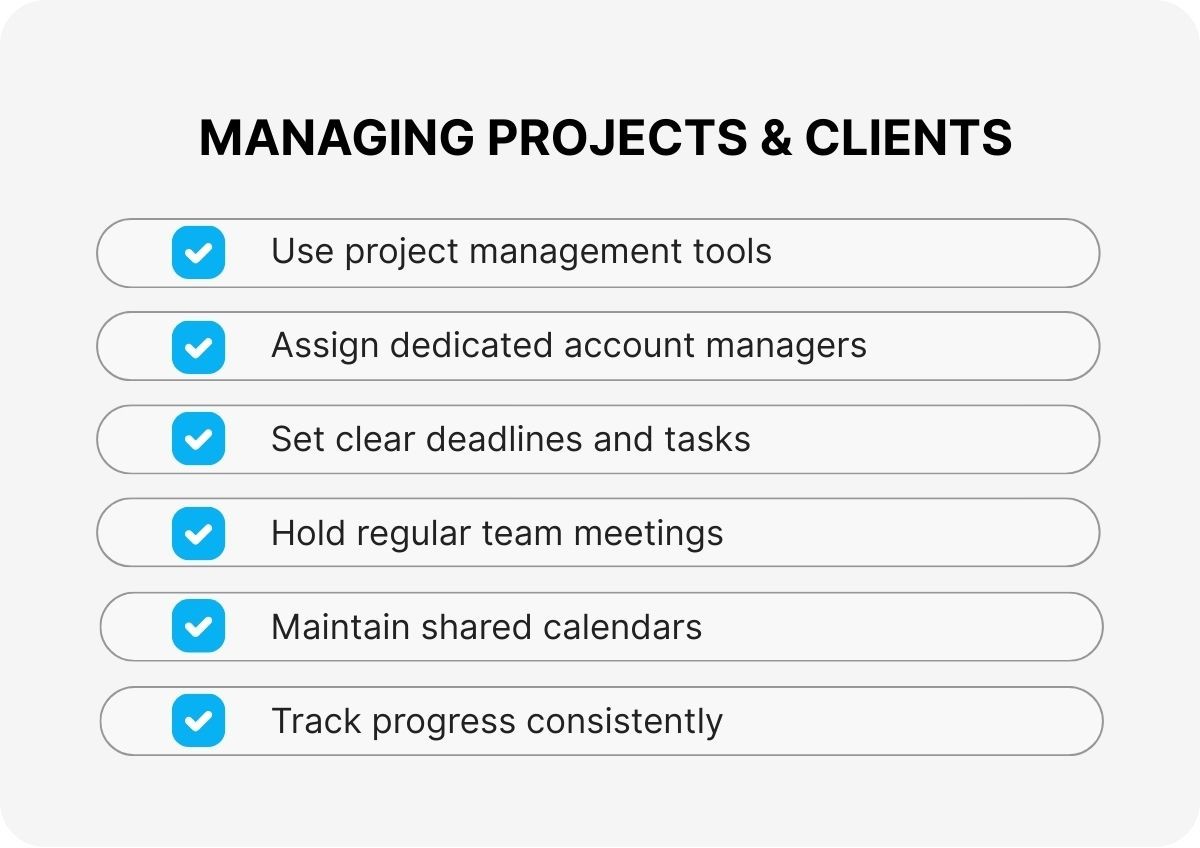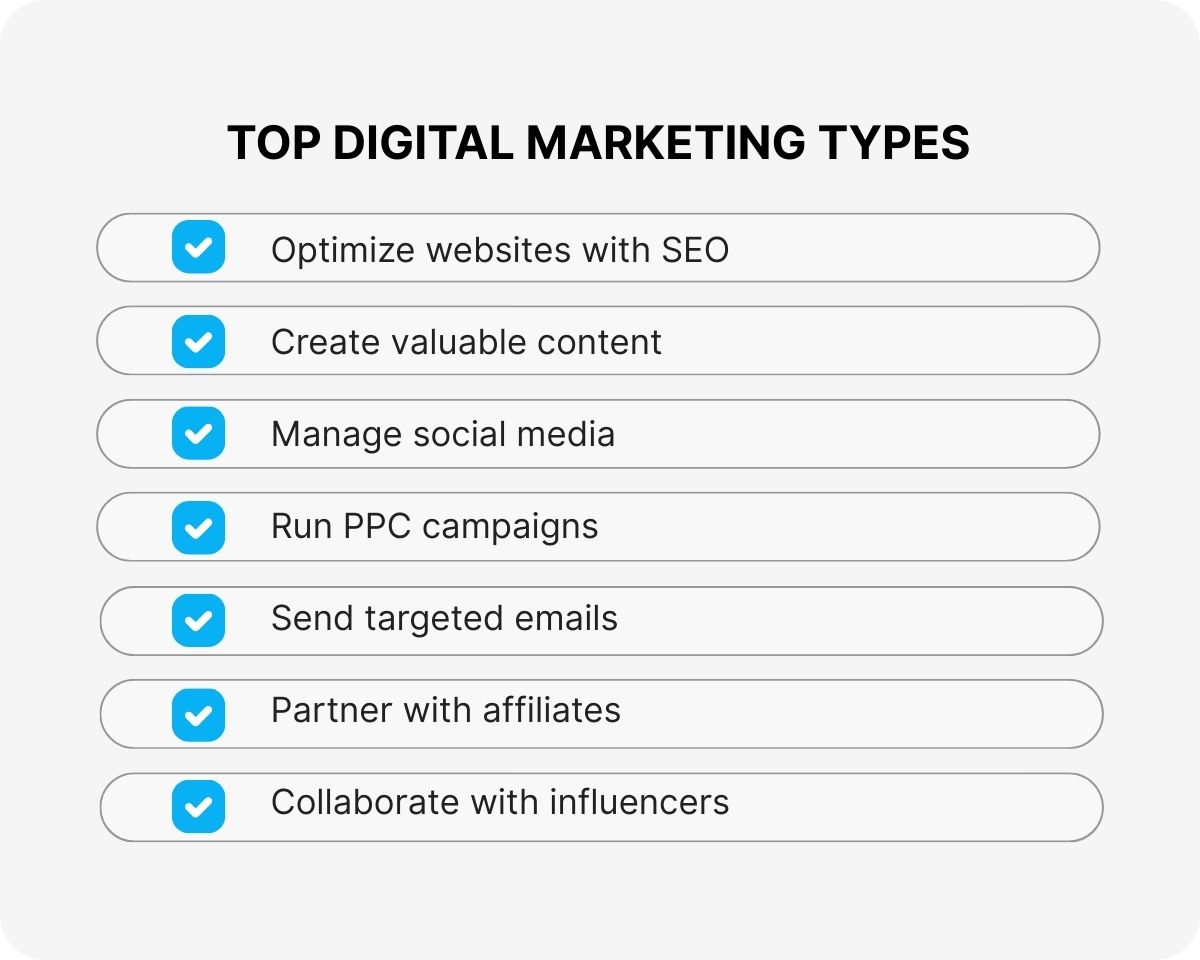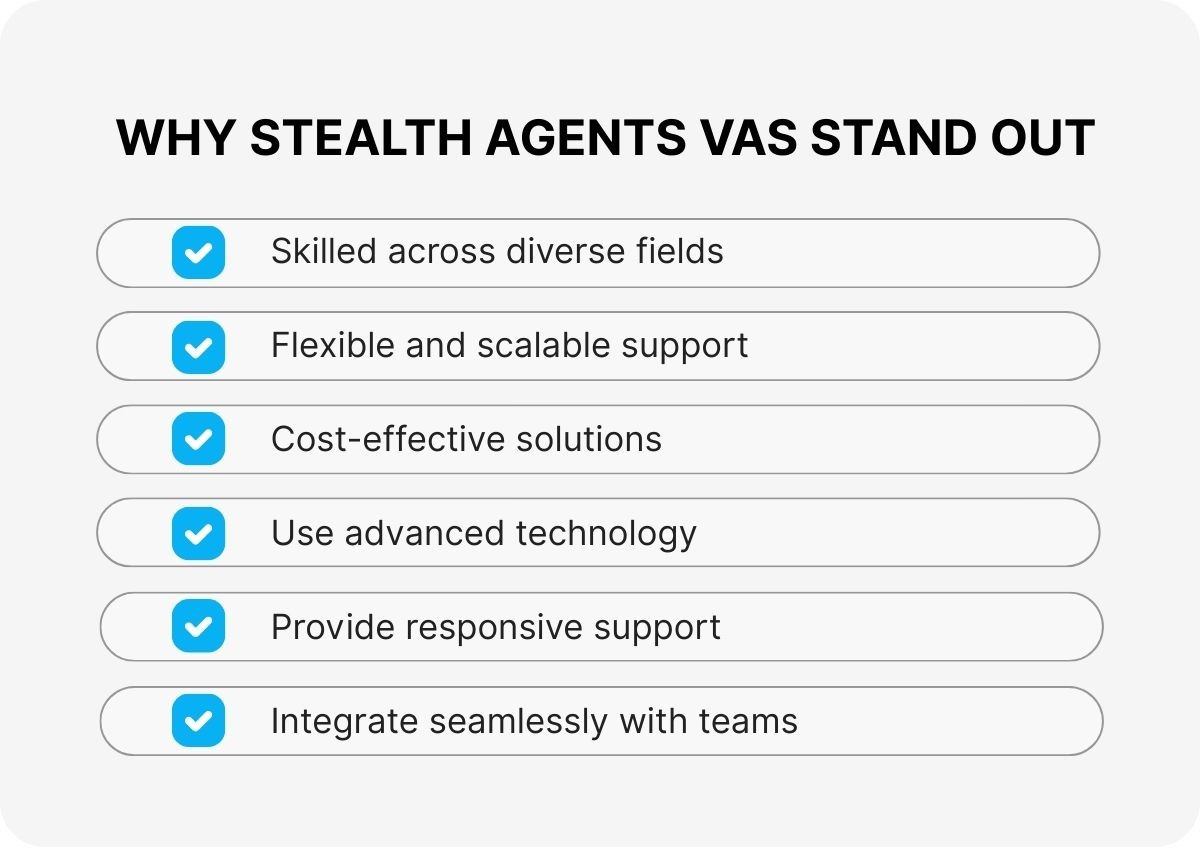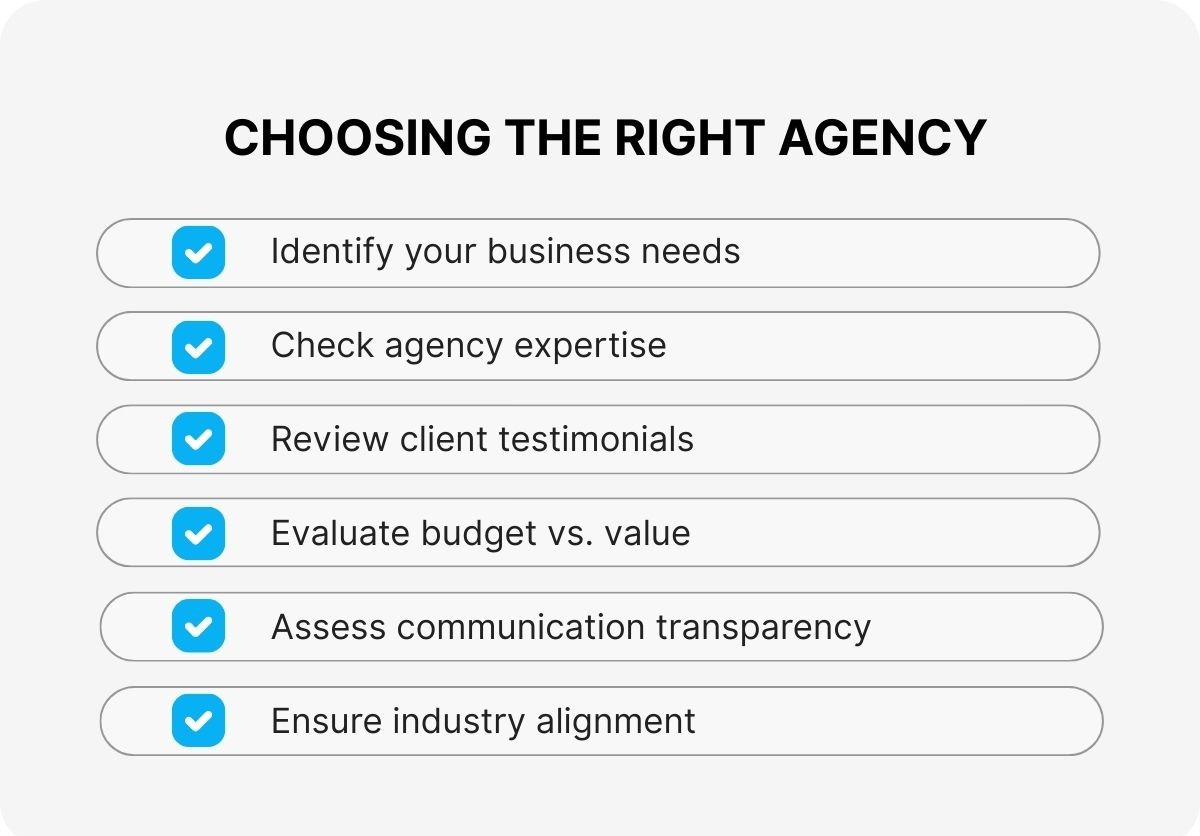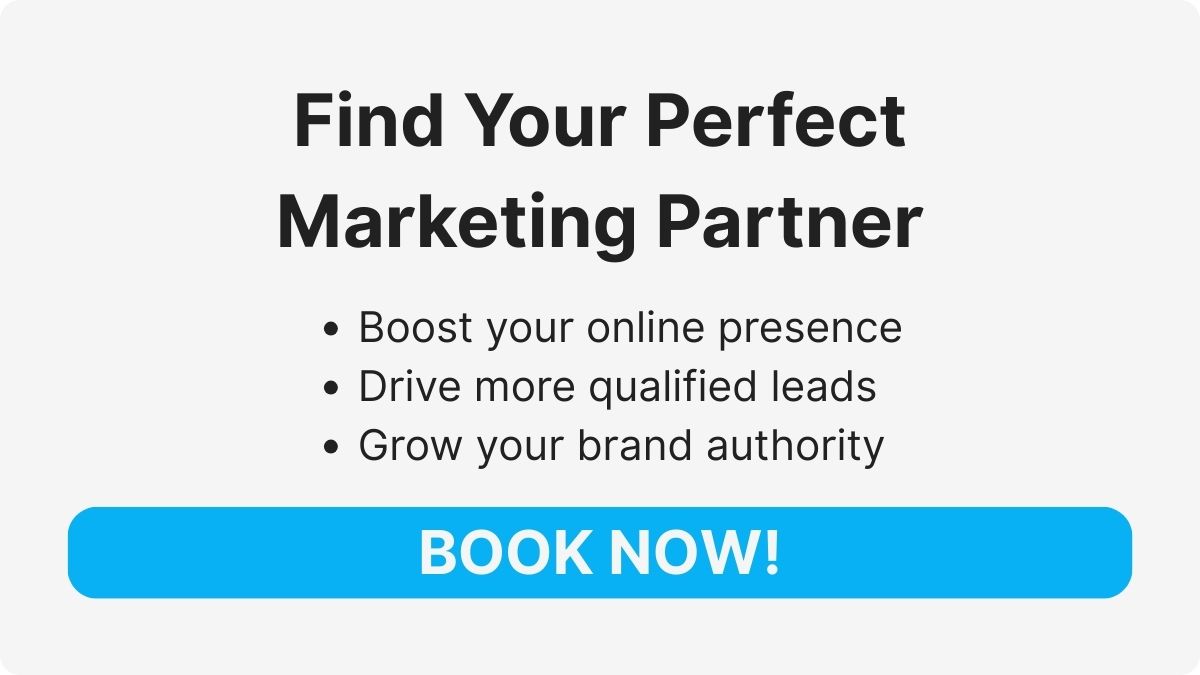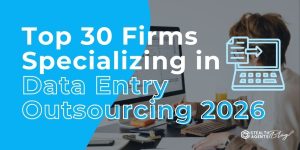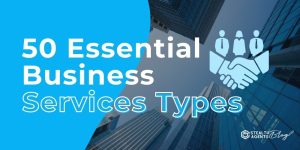support companies are essential for maintaining strong client relationships, and Stealth Agents makes it simple by providing 24/7 virtual assistants trained to handle support tasks across any industry. If you’re looking to improve customer satisfaction and reduce operational stress, Stealth Agents is your go-to solution. Start with a free consultation today.
Digital marketing agencies play a pivotal role in driving business growth, with global digital ad spending expected to surpass $700 billion by 2025.
Businesses leveraging expert agencies experience 2.8 times higher revenue growth than those managing marketing in-house.
These agencies are at the forefront of crafting strategies, optimizing campaigns, and staying ahead of digital trends.
From enhancing brand visibility to generating quality leads, their expertise is indispensable in today’s competitive market.
Transitioning from outdated processes to modern digital solutions ensures scalability and measurable results.
Entrepreneurs and executives know that a well-executed marketing strategy can define a brand’s success.
By partnering with the right agency, businesses gain access to innovative tools, insights, and industry-leading techniques.
Statistics highlight that 76% of businesses using professional marketing report a significant ROI boost.
Investing in the right partner saves time, cuts costs, and elevates brand influence.
Leading the edge of outsourcing solutions, Stealth Agents provides businesses, including those on the digital marketing agencies rate list, with seasoned virtual assistant services, offering free consultations to match your preferences and pricing needs.
How Strategic Platform Partnerships Drive Results
Top digital marketing agencies don’t just rely on textbook strategies—they thrive by partnering directly with industry giants like Google and Meta. These platform partnerships unlock exclusive resources, advanced analytics, and early access to cutting-edge features, putting their clients a step ahead in a fast-changing landscape.
By tapping into insights from Google’s suite (think Analytics and Ads) or Meta’s vast social ecosystem, agencies can:
- Craft hyper-targeted campaigns using richer audience data
- Optimize ad spend with real-time performance metrics
- Access beta tools before the general public
- Stay updated on algorithm changes and compliance
What Makes a Digital Agency an Ideal Partner?
Choosing the right digital agency can transform your entire business outlook—and the results often speak for themselves. The best agencies act as an extension of your team, bringing expertise, creativity, and problem-solving to the table so you’re never left navigating complex marketing decisions alone.
Here’s what sets an exceptional digital agency apart:
- A track record of proven results: Reputable agencies like HubSpot Partners, Ogilvy, or Wpromote deliver measurable ROI, leveraging data-driven strategies for sustained revenue growth.
- Deep industry insight: Seasoned teams stay ahead of evolving trends—think Google algorithm updates or the latest in TikTok advertising—to ensure your brand doesn’t just keep up but leads.
- Tailored strategies: The ideal partner develops campaigns customized to your business goals, audience, and unique challenges—no cookie-cutter solutions here.
- Transparent reporting: Expect clear communication, actionable analytics, and ongoing optimization so that every dollar you invest works harder.
- Scalability and flexibility: Whether you’re a startup ready to scale or an established business evolving strategy, a great agency adapts with you, offering the technology and know-how for every chapter of growth.
Who Do Top Digital Marketing Agencies Work With?
Whether you’re steering a fledgling startup or managing a globally recognized powerhouse, digital marketing agencies are trusted partners for businesses at every stage.
Their client roster typically spans:
- Startups eager to launch and scale: Agencies provide the foundational marketing push needed to break into competitive markets and grow quickly—think innovative SaaS apps or ambitious eCommerce boutiques.
- Fortune 500 giants and established enterprises: Industry leaders in tech, retail, healthcare, and beyond rely on agencies to refine their digital presence, roll out major campaigns, and stay nimble with the latest technologies.
- Nonprofits seeking greater reach and engagement:Effective web design, compelling storytelling, and targeted fundraising strategies help charitable organizations engage supporters and further their missions.
- eCommerce brands and consumer-focused platforms: From fashion retailers to food delivery companies, online sellers tap into agency expertise to boost conversions, optimize user experience, and drive revenue.
- Government teams and B2B service providers: Complex, data-driven solutions are crafted for public sector needs and B2B markets, ensuring maximum efficiency and measurable outcomes.
How Digital Agencies Deliver Strategic Expertise
Partnering with a digital marketing agency opens the door to a powerhouse of strategic know-how and actionable insights.
What exactly does that look like in practice? Let’s break it down:
- Decoding Market Trends: Top agencies have a knack for spotting shifts in the marketplace before they go mainstream. Using smart analytics tools and real-time data (think Google Analytics, SEMrush, and Statista), they monitor competitors, analyze audience behaviors, and anticipate industry changes—ensuring your brand stays a step ahead.
- Shaping Brand Strategies: A strong brand is more than just a catchy logo. Agencies dive deep into your business goals and values to craft unique positioning strategies. They create clear messaging, design visual identities, and advise on the tone of your brand’s voice—whether you’re launching for the first time or plotting a full-scale rebrand.
- Mastering Social Media Management: Social isn’t just about posting updates—it’s about building lasting connections. Agencies curate content calendars, develop campaigns tailored to each platform (Instagram, LinkedIn, TikTok—you name it), and engage with your audience for maximum impact. They monitor engagement, test new campaign ideas, and adjust strategies on the fly, ensuring your brand shines through every scroll.
- Hands-On Campaign Tracking: The best teams don’t just set campaigns in motion—they constantly track performance. With regular reports and transparent analytics, they measure what’s working, tweak what isn’t, and help you understand exactly what’s fueling your digital growth.
Digital Agency vs. Digital Marketing Agency: Key Differences
Navigating the world of digital services can feel a bit like learning to tell apart twin siblings—at a glance, they seem similar, but look closer and their specialties stand out.
A digital agency is a jack-of-all-trades in the online space. These agencies offer a broad suite of services that span the digital landscape, from designing sleek websites and building robust apps to shaping your overall brand identity and integrating the latest technologies, and many businesses complement these services by hiring an online marketing virtual assistant to manage campaigns and streamline online engagement. Think of them as the architects, developers, and designers, focusing on building a strong digital foundation for your business long-term.
Conversely, a digital marketing agency zeros in on one core mission: getting your brand in front of the right audience. Their expertise centers on devising and executing strategies to drive traffic, convert leads, and generate measurable ROI through tactics like SEO, online ads, content marketing, and social media campaigns.
In a nutshell:
- Digital agencies address the big picture—overhauling digital infrastructure, creating unforgettable visuals, and ensuring seamless user experiences.
- Digital marketing agencies put the pedal to the metal on promotion, running campaigns and fine-tuning efforts to boost conversions, sales, and visibility fast.
What Does a Digital Marketing Agency Do?
1. Search Engine Optimization (SEO)
Digital marketing agencies use SEO to help businesses rank higher on search engines like Google.
They identify the right keywords, optimize website structure, and produce high-quality content.
This makes it easier for potential customers to find a business online.
SEO helps increase website traffic and brand visibility over time.
It’s a crucial step for staying competitive in the digital world.
2. Content Creation
Agencies create engaging content to attract and retain customers.
This includes blog posts, videos, infographics, and more.
Good content builds trust and keeps audiences interested in a brand.
It also helps improve online visibility and SEO efforts.
High-quality content is the backbone of most digital marketing strategies.
How Agencies Approach Content Development for SEO and Engagement
Digital marketing agencies rely on a strategic blend of art and science when it comes to content development. Their process typically starts with robust keyword research, using tools like SEMrush or Ahrefs to identify high-impact search terms. By naturally weaving these keywords into blog posts, landing pages, and multimedia, agencies can help boost organic search rankings and drive targeted traffic.
But it’s not just about the algorithms—reader engagement stays front and center. Agencies focus on crafting content that answers real user questions, often building comprehensive guides, how-to videos, and shareable infographics. For enhanced engagement, interactive content such as polls, quizzes, and webinars becomes part of their playbook.
Additionally, agencies regularly analyze user behavior using analytics platforms like Google Analytics to determine what works—and what doesn’t. This data-driven approach enables quick pivots, ensuring content remains relevant and engaging. Many businesses now choose to outsource digital marketing Philippines to gain access to experts who specialize in crafting SEO-driven content with measurable engagement results.
Ultimately, the goal is to create value-packed resources that both search engines and audiences love. A solid agency content strategy balances optimized structure, storytelling, and active engagement to keep brands visible and audiences coming back.
3. Social Media Management
Marketing agencies manage social media accounts to connect businesses with their audience.
They create posts, interact with followers, and run paid ad campaigns.
This boosts brand awareness and fosters customer loyalty.
Social media is a platform where businesses can showcase their personality and engage in real time.
A well-managed social presence can greatly improve a business’s reputation.
Types of Advertisements and Platforms Used by Agencies
Digital marketing agencies craft a wide variety of ad campaigns to maximize reach and impact across multiple channels. Their expertise extends to:
- Search Ads: These appear on search engines like Google and Bing, capturing users actively searching for products or services.
- Social Media Ads: From eye-catching Facebook and Instagram ads to sponsored posts on LinkedIn and trending campaigns on Twitter (now X), agencies meet audiences where they spend their time.
- Display Ads: Visually engaging banners and graphics are strategically placed on relevant websites within the Google Display Network or partner networks, boosting brand visibility.
- Video Ads: Platforms like YouTube offer targeted video advertising that tells a brand’s story and drives engagement.
- Remarketing Campaigns: Agencies excel at setting up ads that reconnect with previous website visitors, encouraging them to return and convert.
4. Branding and Creative Campaigns
Agencies elevate brands through strategic branding and creative campaigns.
They start by understanding a business’s goals, values, and target audience. Next, they develop a unique visual identity—including logos, color schemes, and brand messaging—that captures a brand’s essence.
Creative teams craft engaging visuals, motion graphics, and compelling copy for both web and mobile platforms. Campaigns often include eye-catching graphics, video content, and coordinated messaging across multiple digital channels.
With a focus on authentic engagement, agencies use tools like Adobe Creative Suite and Figma and draw inspiration from leading brands like Nike, Apple, and Coca-Cola. Every campaign is closely monitored, optimizing for measurable results and ensuring the brand remains memorable in a crowded marketplace.
Digital Reputation Management, SEM, and Social Media Marketing (SMM)
Digital Reputation Management
Agencies help businesses monitor and maintain a positive online image.
This involves tracking brand mentions, responding to reviews, and addressing negative feedback promptly.
By managing what appears about your business on sites like Google, Yelp, or Trustpilot, you build trust and credibility with potential customers.
A solid reputation can make all the difference in a customer’s decision to choose your brand.
Search Engine Marketing (SEM)
SEM focuses on increasing a website’s visibility in search engine results through paid advertising.
Agencies research targeted keywords, create compelling ad copy, and manage bidding strategies on platforms like Google Ads.
Effective SEM campaigns help businesses attract high-intent customers who are actively searching for their services.
This approach provides fast, measurable results and is especially useful for boosting brand awareness and sales in competitive markets.
Social Media Marketing (SMM)
SMM services concentrate on building and engaging audiences across platforms like Facebook, Instagram, Twitter, and LinkedIn.
Agencies plan, produce, and schedule content—everything from eye-catching images to bite-sized videos—tailored to each platform’s audience.
They also manage ad campaigns and analyze performance to maximize reach and engagement.
SMM fosters community, strengthens loyalty, and drives consistent interaction with the brand.
Choosing the Right Social Media Channels
Selecting the best social media platforms depends on your industry, target market, and brand voice.
- Instagram and Facebook are ideal for visual brands—think lifestyle, fashion, food, and retail—where eye-catching photos and videos drive engagement.
- LinkedIn is perfect for B2B companies, professionals, and those looking to connect with decision-makers in niche industries.
- TikTok appeals to younger audiences and brands leveraging short-form, viral content, creative challenges, or trending topics.
- Twitter suits brands that thrive on real-time updates, customer engagement, and concise communication—great for tech, news, and entertainment.
- Pinterest is a strong choice for brands in home decor, DIY, weddings, and recipes, where inspiration and discovery lead to action.
4. Pay-Per-Click Advertising (PPC)
Agencies create PPC campaigns to drive immediate traffic to a website.
They set up ads on platforms like Google or Facebook, targeting the right audience.
Businesses only pay when someone clicks on their ad, making it cost-effective.
PPC helps generate quick leads and boosts sales.
It’s especially effective for promoting specific products or services.
5. Email Marketing
Email marketing keeps businesses connected with customers by sending tailored messages.
Agencies design newsletters, promotional offers, and personalized emails to keep customers engaged.
This helps nurture leads and build long-term relationships.
Email campaigns are cost-effective yet highly impactful.
They remain one of the most reliable tools for driving repeat business.
6. Analytics and Reporting
Marketing agencies analyze data to see what’s working and what’s not.
They track website traffic, ad performance, and customer behavior.
This helps businesses make informed decisions and adjust strategies for better outcomes.
Analytics ensure every marketing effort is effective and delivers a return on investment.
Clear reporting keeps clients updated on their progress.
Key Metrics for Measuring Digital Campaign Success
Agencies rely on a range of performance metrics, or KPIs, to evaluate how well digital campaigns are working.
Some of the most important ones include:
- Website Traffic: Tracking the number of visitors to your site helps gauge overall reach.
- Conversion Rate: Measures the percentage of visitors who take a desired action, such as making a purchase or signing up for a newsletter.
- Click-Through Rate (CTR): Shows how often people click on ads or links in your campaigns.
- Cost Per Click (CPC) or Cost Per Action (CPA): Keeps tabs on how much you’re spending for each click or specific action.
- Return on Ad Spend (ROAS): Evaluates the revenue generated for every dollar spent on advertising.
- Engagement Metrics: Includes likes, shares, comments, and other interactions on social media or blog posts.
- Email Open and Click Rates: Helps measure the effectiveness of email marketing efforts.
7. Tools and Methodologies for Data-Driven Marketing
Agencies use a blend of advanced tools and proven strategies to deliver measurable marketing results.
Popular tools such as Google Analytics, SEMrush, and HubSpot help track key performance indicators like traffic, conversion rates, and campaign effectiveness. Agencies also leverage platforms like Meta Business Suite and Google Ads to manage and optimize campaigns in real time.
These tools allow for deep insights into customer behavior and marketing ROI.
By applying methodologies like A/B testing, audience segmentation, and automation, agencies ensure each campaign is tailored for maximum impact. Regular data analysis helps fine-tune strategies, ensuring efforts align with business goals and deliver noticeable growth.
Clear, transparent reporting keeps businesses informed, providing confidence that every marketing dollar is driving results.
How Digital Marketing Agencies Organize Teams for Results
Digital marketing agencies carefully structure their teams and workflows to ensure every project delivers real, measurable results.
Here’s how they do it:
Specialized Teams with Clear Roles
Agencies typically divide their staff into specialized teams—think SEO experts, content creators, developers, designers, and data analysts. Each member focuses on their own area, allowing for deeper expertise and faster project progress.
Project Managers Lead the Way
Every project is steered by a dedicated project manager. This person coordinates between teams, monitors deadlines, and communicates with clients. Having a project manager ensures everyone stays on track and that objectives are met.
Collaborative Planning
Before starting a new campaign or website build, agencies hold collaborative strategy sessions. Teams set clear goals, define key metrics (like leads, clicks, or conversions), and map out a timeline. This upfront planning ensures everyone understands what “success” looks like from day one.
Transparent Processes and Regular Updates
Agencies usually adopt proven workflows, like agile or scrum, breaking projects into phases or “sprints.” Regular meetings and detailed progress reports keep everyone in the loop—both staff and clients. Transparency builds trust and allows quick adjustments if tactics aren’t working.
Creative and Technical Synergy
Designers and technical experts work hand-in-hand to blend eye-catching visuals with functionality. This teamwork helps build websites and campaigns that not only look good but also drive results—whether that’s more newsletter signups or higher sales.
Data-Driven Adjustments
With dedicated analytics specialists on board, agencies continuously monitor performance and report on traffic, conversions, and engagement. These insights let teams refine strategies in real time, optimizing campaigns for the highest ROI.
Flexible Support
Many agencies offer unlimited support or consultations, ensuring clients always have help at hand. Whether you’re a startup launching a new site or an established brand running global campaigns, an agency adapts its team structure to fit your needs.
By blending specialized talent, strategic project management, and a focus on analytics, digital marketing agencies consistently deliver measurable outcomes that help businesses grow.
8. Web Design and Development
Agencies design modern, user-friendly websites that attract and convert visitors.
They ensure websites work well on both computers and phones.
A good website is not just visually appealing but also functional and fast.
It acts as the digital storefront, leaving a lasting impression on visitors.
A strong website is essential for building trust and boosting online sales.
How Does the Digital Marketing Process Work?
A successful digital marketing campaign or website project starts with a game plan—and agencies know it’s not just about setting things in motion and hoping for the best. First, they dig deep into research, analyzing your industry, competitors, and customer behaviors to understand what works and where the opportunities are hiding.
Next, agencies map out a clear strategy driven by data rather than guesswork. They set goals, select the right channels (like social media, SEO, or paid advertising), and craft targeted messages that resonate with your audience. Throughout the project, the process is flexible—agencies collect real-time feedback, monitor key performance indicators, and adjust their methods as needed.
Regular updates keep clients in the loop, so there are no surprises. And all along the way, agencies use insights from analytics tools like Google Analytics and HubSpot to see what’s delivering real results. This approach—plan, execute, track, and refine—ensures every campaign or site launch moves businesses forward efficiently and effectively.
How Agencies Drive Lead Generation and Conversion Optimization
Digital marketing agencies focus on proven strategies to generate leads and improve conversion rates.
For lead generation, agencies set up targeted campaigns on platforms like Google Ads and Facebook. They use tailored landing pages, engaging content, and strategic calls to action to capture interest. Some agencies also develop lead magnets—think free ebooks or webinars—to encourage sign-ups. Email opt-ins and retargeting ads help nurture potential customers until they’re ready to take action.
To boost conversion rates, agencies rely on ongoing testing and optimization. They analyze user behavior using tools like Google Analytics and Hotjar, then make changes to improve website navigation, page speed, and messaging. Agencies often run A/B tests on headlines, images, and buttons to see what works best. By personalizing the user experience and simplifying the path to purchase, agencies help businesses turn more visitors into loyal customers.
How Agencies Stand Out: Specializations That Make a Difference
Agencies often set themselves apart by honing specialized skills that meet the evolving needs of businesses.
AI-Powered Solutions
Many agencies now leverage artificial intelligence to offer cutting-edge services. This can include developing smart platforms, predictive analytics, and intelligent marketing automations. AI-driven tools help businesses quickly process large volumes of data, personalize customer experiences, and optimize campaigns for better results.
UI/UX Design Expertise
Leading agencies focus on crafting seamless user experiences and visually compelling interfaces. By blending creative design with deep user insights, they build websites and apps that not only look impressive but also convert visitors into loyal customers. A strong UI/UX approach ensures that digital products are enjoyable and intuitive, enhancing both satisfaction and retention.
Performance Marketing & Data-Driven Strategy
Top agencies also excel at using analytics to steer marketing efforts. This means every campaign is tracked, measured, and refined based on real results. Techniques such as advanced SEO, targeted PPC, and content optimization ensure clients see steady growth. By grounding decisions in data, agencies deliver campaigns that are both effective and cost-efficient.
Full-Stack Development and Digital Innovation
Some agencies round out their offerings by providing everything from strategy and design to in-depth engineering. Full-stack capabilities allow them to launch scalable, modern platforms while integrating the latest tech innovations.
In short, agencies differentiate themselves by blending technical expertise, creativity, and data-driven strategy—giving clients the best possible outcomes in today’s digital landscape.
How Long Does It Take to See Results from Digital Marketing?
The timeline for seeing results from digital marketing can vary based on the strategies used and your business goals.
- SEO: Results typically start showing in 3 to 6 months, as ranking higher on Google and building organic traffic takes time.
- PPC: Pay-per-click campaigns can generate traffic and leads almost immediately after launching your ads on platforms like Google Ads or Facebook.
- Social Media: Building a loyal audience and increasing engagement may take a few weeks to a few months, depending on content consistency and target audience.
- Content Marketing: Compelling content might start drawing in visitors within the first few months, but authority and trust build up over time.
- Email Marketing: Email campaigns can lead to quick wins, such as sales or sign-ups, as soon as a message lands in inboxes.
Real-World Examples: How Digital Agencies Boost Brands
Looking for proof that digital agencies make a difference? Let’s highlight how brands have benefited from agency partnerships when revamping their image, launching new initiatives, or turning up digital engagement.
- Rebranding on a Global Scale:
A major technology brand needed to strengthen loyalty and stand out in a crowded market. By working with a digital agency, they launched a global rewards program across both online and retail spaces. The agency not only set up the program but also collected invaluable customer data and delivered regular automated reports. Within six months, they built a thriving community of reward members and dramatically increased customer retention.
- Launching New Community Projects:
When a lifestyle community wanted to make a splash with its pilot pop-up project, a digital agency took the reins. They unified the brand’s look online and offline, orchestrated a robust multi-platform social media blitz, and even ran traditional ads on public transit. The result? Thousands of new followers, tens of thousands of online engagements, and hundreds of thousands of impressions—all from scratch.
- Enhancing Local Identity Online:
A well-known search giant collaborated with an agency to bring a city’s downtown development plan to digital life. The project showcased local stories, events, and culture, all wrapped in a user-friendly website designed to capture attention and foster community pride.
- Making Content Go Global:
- As a global streaming leader sought to centralize its news and brand story, a digital agency developed a sleek, multi-language website. By integrating advanced translation tools, they made it easier for the brand to localize content and connect with audiences around the world.
- Targeted Digital Engagement:
- For a luxury automaker, distinguishing between true customers and casual fans was crucial. An agency stepped in with advanced tracking and smart ad targeting, slashing acquisition costs while dramatically increasing qualified leads.
- Supercharging Social Media Campaigns:
- A health-focused public figure turned to an agency to boost holiday campaign results. Instead of hitting a modest goal for new fans, the agency’s strategic social push delivered results fifteen times higher than expected. This included big jumps in followers, reach, and website traffic.
- Driving Online Sales for Retailers:
A premium footwear retailer teamed up with a digital agency to grow its digital presence and sales. The agency’s expertise led to a huge spike in organic search traffic, a massive jump in return on ad spend, and impressive media exposure—helping cement the retailer’s position in the luxury market.
- Building Executive-Focused Publications:
Sometimes, an agency’s story starts with their own transformation. One digital team used its background in digital publishing to help business leaders connect through compelling content and tailored marketing. Their client magazine now pulls millions of impressions a month, drawing in a highly targeted executive audience.
Through design makeovers, data-driven insights, and imaginative campaigns, digital agencies help brands connect with customers—and those wins can be measured in real growth and lasting impressions.
Do Digital Agencies Outsource Work?
Yes, many digital marketing agencies do outsource certain tasks to trusted partners or experts, especially when a project requires specialized skills or additional resources.
Commonly Outsourced Projects
- Graphic design and video production: Agencies often partner with freelance designers or creative studios for high-quality visuals, animation, and video content.
- Web development and coding: Complex website builds or technical updates may be handled by development firms or specialist freelancers for advanced functionality.
- Content writing and copy: Many agencies collaborate with professional writers or content houses for blog posts, articles, and copywriting needs—helping keep content fresh and engaging.
- Paid advertising management: If agencies need expertise in specific ad networks like Google Ads, Facebook, or LinkedIn, they may team up with certified advertising professionals or boutique PPC firms.
- SEO audits and link-building: For in-depth SEO work, agencies might bring in search engine specialists or agencies with strong track records for audits, backlinking, and technical optimization.
How Agencies Manage Multiple Projects and Clients
Digital marketing agencies often juggle several projects for different clients at once. To keep everything running smoothly, they use project management tools like Trello, Asana, or Monday.com to organize tasks, set deadlines, and track progress.
Agencies usually assign dedicated account managers or team leads to oversee each client’s needs. This ensures quick communication and personalized attention. Regular meetings, clear timelines, and shared calendars help teams stay on top of deliverables.
By breaking work into manageable steps and using efficient systems, agencies deliver consistent results—no matter how many projects are in motion. Good organization means each client gets the focus and quality they deserve.
Approaches for Rapid Prototyping, MVP Development, and Lean Validation
Digital marketing agencies often use a mix of smart strategies and practical tools to speed up the development of minimum viable products (MVPs).
Here’s how they get MVPs off the ground quickly and efficiently:
- Leverage Ready-Made Solutions: Instead of building everything from scratch, agencies tap into SaaS products, open-source software, or customizable frameworks like WordPress or Shopify. This cuts down time and reduces costs.
- Agile Methodologies: Teams work in fast sprints, focusing on delivering a working version early. This allows for quick feedback and real-time adjustments.
- Rapid Prototyping Tools: Platforms like Figma, Sketch, or InVision help agencies create interactive prototypes. These mockups can be shared with stakeholders before investing in full development.
- Lean Validation Tactics: Agencies prioritize essential features and launch with just enough functionality to test market response. Feedback loops with early users or targeted focus groups help shape the next steps.
- Cost-Effective Launches: By avoiding unnecessary complexity and using proven tech, agencies keep MVP investments manageable—often within startup-friendly budgets.
What are the top 7 types of digital marketing?
1. Search Engine Optimization (SEO)
SEO is about optimizing a website to rank higher on search engines like Google. It involves using the right keywords, improving website speed, and creating quality content. The goal is to attract organic traffic and make it easier for people to find your business. SEO builds a strong online presence over time and enhances brand credibility. It’s a cost-effective way to drive consistent results.
2. Content Marketing
Content marketing focuses on creating and sharing valuable content to attract and keep customers. This can include blog posts, videos, podcasts, eBooks, and more. It helps build trust, educate your audience, and encourage them to take action. A consistent content strategy boosts SEO and long-term customer loyalty. Great content connects your brand to your audience in a meaningful way.
3. Social Media Marketing
Social media marketing uses platforms like Facebook, Instagram, and LinkedIn to reach and engage audiences. Agencies create posts, run ads, and foster interaction with followers. It boosts brand awareness, drives website traffic, and builds community around your business. Social media also allows businesses to respond to customer concerns in real time. It’s an essential tool for connecting with audiences directly.
4. Pay-Per-Click Advertising (PPC)
PPC involves placing paid ads on platforms like Google or social media sites. Businesses bid on keywords, and their ads appear when users search those terms. The advertiser only pays when someone clicks on the ad, ensuring cost-effectiveness. PPC delivers quick results and is great for promoting specific products or services. It’s a strategic way to attract customers who are ready to buy.
5. Email Marketing
Email marketing involves sending tailored messages, newsletters, or promotions directly to customers’ inboxes. It’s a great way to nurture leads, retain customers, and promote offers. Personalized emails often generate higher engagement than other forms of advertising. It’s affordable and provides a strong return on investment. A well-planned email campaign keeps your audience informed and engaged.
6. Affiliate Marketing
Affiliate marketing partners businesses with affiliates who promote their products or services. Affiliates earn commission for each sale they generate through their unique referral links. This form of marketing expands your reach without upfront advertising costs. It’s a performance-based model that’s ideal for scaling sales. Partnering with affiliates allows businesses to leverage a larger audience.
7. Influencer Marketing
Influencer marketing relies on popular social media figures to promote a brand to their followers. Influencers have established credibility and trust with their audience, making their recommendations impactful. This marketing type increases brand visibility and creates authentic connections with target consumers. It’s especially effective for reaching niche audiences quickly. Collaborations with the right influencers can transform brand perception and boost sales.
Top 25 Digital Marketing Agencies
1. Stealth Agents
Overview: Stealth Agents is a top-rated digital marketing agency providing innovative solutions to businesses worldwide. Specializing in virtual assistant services, they help companies streamline operations and execute cutting-edge marketing strategies effortlessly. Known for their exceptional dedication, Stealth Agents tailor services to meet specific client needs, delivering measurable results. They offer free consultations to help businesses explore their options and customize their approach.
Website: www.stealthagents.com
Google Ratings: 4.9/5
2. WebFX
Overview: WebFX is a leading agency known for its data-driven strategies and full-service digital marketing solutions. They offer SEO, PPC, content marketing, and more, tailored to businesses of all sizes. Their customer-first approach ensures long-term partnerships that drive real growth. They also provide industry-specific expertise and tools to maximize ROI.
Website: www.webfx.com
Google Ratings: 4.8/5
3. Ignite Digital
Overview: Ignite Digital focuses on providing comprehensive digital marketing strategies for startups and large enterprises alike. Their services include SEO, social media management, and paid advertising. They are known for their transparency and performance-oriented approach. Clients benefit from their in-depth market insights and tailored solutions.
Website: www.ignitedigital.com
Google Ratings: 4.7/5
4. Disruptive Advertising
Overview: Disruptive Advertising specializes in PPC campaigns and digital performance audits that transform business outcomes. They help companies understand their advertising gaps and optimize for better performance. Their personalized client approach makes scaling growth seamless and effective.
Website: www.disruptiveadvertising.com
Google Ratings: 4.6/5
5. Thrive Internet Marketing
Overview: Thrive Internet Marketing offers full-stack digital marketing services designed to elevate brands online. Their team excels in web design, SEO, and social media campaigns. They emphasize creating personalized strategies for measurable growth. With an excellent track record, they enhance online visibility for clients across sectors.
Website: www.thriveagency.com
Google Ratings: 4.8/5
6. LYFE Marketing
Overview: LYFE Marketing is a specialized social media marketing agency that boosts online presence through strategic campaigns. Their services include paid ads, organic posts, and content creation tailored to audience engagement. They are known for affordable packages and high-impact results, especially for small businesses.
Website: www.lyfemarketing.com
Google Ratings: 4.7/5
7. Tinuiti
Overview: Tinuiti is a new-age marketing agency focusing on branding and data-aligned performance across platforms. Their expertise in Amazon marketing, social media ads, and SEO makes them a favorite for e-commerce businesses. They integrate cutting-edge tools to deliver meaningful results.
Website: www.tinuiti.com
Google Ratings: 4.5/5
8. SmartSites
Overview: SmartSites is known for its result-oriented approach to digital marketing and website design. They specialize in SEO, PPC, and custom web design to provide clients with a cohesive digital presence. Building trust with a client-first approach, they ensure every campaign is a success.
Website: www.smartsites.com
Google Ratings: 4.8/5
9. Single Grain
Overview: Single Grain is a high-performance digital marketing agency focusing on generating leads and scaling businesses online. Their services range from SEO, PPC, and content marketing to consulting. Their data-driven techniques ensure they deliver high-impact campaigns to every client they work with.
Website: www.singlegrain.com
Google Ratings: 4.6/5
10. OuterBox
Overview: OuterBox is a growth-focused agency specializing in digital marketing for eCommerce businesses. From omnichannel marketing to SEO, their comprehensive solutions help online stores maximize traffic and conversions. Their expertise shines in ranking eCommerce stores in competitive niches.
Website: www.outerboxdesign.com
Google Ratings: 4.7/5
11. SEO Brand
Overview: SEO Brand provides end-to-end digital marketing services with strong expertise in SEO and online reputation management. They work closely with clients to ensure excellent visibility and engagement across platforms. With a focus on data and analytics, they create tailored marketing solutions.
Website: www.seobrand.com
Google Ratings: 4.7/5
12. Volume Nine
Overview: Volume Nine brings a creative edge to digital campaigns by customizing strategies to meet brand goals. Their services span SEO, content creation, and influencer partnerships. They are known for delivering both immediate results and long-term advantages for their clients.
Website: www.v9digital.com
Google Ratings: 4.6/5
13. Digital Shift
Overview: Digital Shift is notable for delivering focused local SEO strategies for small-business owners. They also provide social media marketing, PPC, and website development services. Established as a direct growth enabler, they consistently deliver satisfying results.
Website: www.digitalshiftmedia.com
Google Ratings: 4.5/5
14. Titan Growth
Overview: Titan Growth specializes in complex SEO tactics and growth optimization strategies. They use advanced tech tools like the proprietary TitanBot to deliver competitive results for businesses. Their cross-disciplinary approach ensures robust campaigns and brand visibility.
Website: www.titangrowth.com
Google Ratings: 4.6/5
15. 360i
Overview: 360i is an award-winning agency adapting global best practices for regional success. They excel in data-driven marketing across digital channels. Their ability to integrate a wide range of marketing functions into cohesive strategies sets them apart.
Website: www.360i.com
Google Ratings: 4.5/5
16. Blue Fountain Media
Overview:Catering to businesses striving for a perfect online presence, Blue Fountain Media excels in creative web design and campaigns. Their high-quality UX integration in projects makes conversion smoother for brands. Their marketing interplay has been refined across decades.
Website: www.bluefountainmedia.com
Google Ratings: 4.8/5
17. PBJ Marketing
Overview: PBJ blends analytics with creative digital solutions for advertising and engagement. Their forward-planning capacity sets precise campaigns that formalize client branding. Offering multiple digital avenues, PBJ adjusts finely tuned marketing instruments appropriately.
Website: www.pbjmarketing.com
Google Ratings: 4.6/5
18. Directive
Overview: Directive specializes in performance-driven digital marketing for B2B and SaaS companies. They focus on data analysis and creating tailored strategies to generate qualified leads and boost conversions. Their services include SEO, PPC, and content marketing, ensuring a measured approach to growth. Clients praise their transparency and ability to deliver ROI-focused solutions.
Website: www.directiveconsulting.com
Google Ratings: 4.7/5
19. Cleverly
Overview: Cleverly is renowned for its LinkedIn lead generation and marketing services that help businesses grow their network. Their specialized strategies help companies target the right audience using effective outreach campaigns. Cleverly also provides tailored advice to ensure consistent engagement. Their innovative approach is ideal for brands looking to leverage LinkedIn as a major growth channel.
Website: www.cleverly.co
Google Ratings: 4.6/5
20. KlientBoost
Overview: KlientBoost combines creative marketing techniques with data-driven solutions to deliver exceptional PPC and CRO results. They focus on optimizing conversion rates and making ad budgets work harder for their clients. The agency is known for its transparency, fast communication, and consistent success with businesses in various sectors. They also provide in-depth analytics and performance tracking.
Website: www.klientboost.com
Google Ratings: 4.8/5
21. Coalition Technologies
Overview: Coalition Technologies is a full-service digital marketing agency with a strong focus on SEO and eCommerce marketing. They use proven methods and cutting-edge tools to boost organic rankings and online profitability for clients. Their results-oriented approach ensures measurable success for businesses of all sizes. Clients value their technical expertise and excellent customer service.
Website: www.coalitiontechnologies.com
Google Ratings: 4.7/5
22. Bliss Drive
Overview: Bliss Drive offers a strategic mix of SEO, web development, and digital solutions geared toward small and medium-sized businesses. They focus on creating campaigns that increase long-term growth while improving user experience. Their client-first approach ensures highly personalized service at every stage of the process. They also excel in building sustainable traffic and conversions.
Website: www.blissdrive.com
Google Ratings: 4.6/5
23. Silverback Strategies
Overview: Silverback Strategies stands out for its innovative SEO, PPC, and content marketing campaigns designed for maximum impact. They prioritize collaboration with clients to align marketing efforts with business goals. Offering a data-backed approach, they help drive targeted traffic and higher ROI. Their dedication to proactive communication and measurable results is highly rated by their clients.
Website: www.silverbackstrategies.com
Google Ratings: 4.8/5
24. Uplers
Overview: Uplers is a global outsourcing agency offering specialized digital marketing, web development, and design services. They provide scalable solutions that cater to agencies and businesses needing expert assistance. Clients benefit from their cost-effective and timely project deliveries. Uplers is known for its proficiency in email marketing, SEO, and PPC services.
Website: www.uplers.com
Google Ratings: 4.7/5
25. SEO.com
Overview: SEO.com is a dedicated SEO-focused agency helping businesses improve search rankings and traffic. They offer keyword optimization, link building, and content creation services tailored to business needs. Their data-driven strategies ensure sustainable visibility and audience engagement. Known for delivering excellent ROI, SEO.com remains a trusted partner for clients seeking steady growth.
Website: www.seo.com
Google Ratings: 4.6/5
Can Small Businesses Afford Digital Marketing Agencies?
Small businesses can absolutely afford digital marketing agencies, as many offer scalable solutions tailored to fit smaller budgets.
These agencies understand the financial constraints of small businesses and often provide flexible pricing models, allowing companies to prioritize the most essential services like SEO, social media management, or pay-per-click campaigns.
While the initial investment may seem like a hurdle, the long-term benefits—such as improved online visibility, greater customer engagement, and enhanced brand awareness—far outweigh the costs.
By driving better-targeted traffic and increasing conversions, these services can lead to significant business growth, making digital marketing a smart and affordable investment for small businesses.
What Makes Stealth Agents’ Virtual Assistants Stand Out?
1. Expertise Across Diverse Fields
Stealth Agents’ virtual assistants are highly skilled professionals trained in a variety of tasks.
From administrative support to specialized areas like digital marketing and data management, they bring years of experience to the table.
Their well-rounded expertise ensures they can adapt to your specific business needs effectively.
This versatility eliminates the need for hiring multiple specialists, streamlining your processes.
With Stealth Agents, your tasks are handled with precision and professionalism every time.
2. Unmatched Flexibility and Scalability
Stealth Agents understands that business needs fluctuate, which is why their virtual assistants offer exceptional flexibility.
Whether you need full-time or part-time support, they can adjust their hours to suit your requirements.
Their services are scalable, allowing you to increase or decrease support as your workload changes.
This adaptability ensures you only pay for what you need, reducing unnecessary expenses.
They seamlessly integrate with your team, providing support during busy periods or special projects.
3. Cost-Effective Solutions Without Compromise
Hiring virtual assistants from Stealth Agents is significantly more cost-effective than bringing on full-time staff.
You save on overhead costs such as office space, equipment, and employee benefits while still receiving top-notch service.
Despite the lower costs, their assistants consistently deliver quality work that matches—and often exceeds—expectations.
This makes their solutions an ideal choice for businesses aiming to maximize productivity without straining their budgets. Stealth Agents ensures that affordability and quality go hand in hand.
4. Advanced Use of Technology
Stealth Agents’ virtual assistants leverage the latest tools and software to enhance efficiency and productivity.
They are proficient in using project management systems, CRM platforms, and various digital tools to streamline workflows.
This technological expertise allows them to deliver quicker turnaround times while maintaining high standards of accuracy.
By integrating these systems into your operations, they help optimize your processes and communication.
Their deep understanding of technology gives your business a competitive edge in today’s digital landscape.
5. Reliable and Responsive Customer Support
The team at Stealth Agents prioritizes client satisfaction by providing exceptional customer support.
Their virtual assistants are responsive and proactive, ensuring your questions and concerns are addressed promptly.
A dedicated account manager is often provided to oversee progress and maintain smooth communication.
This unwavering commitment to service guarantees that you always feel supported and in control.
When you partner with Stealth Agents, you gain not just assistance but a trusted extension of your team.
How to Pick theBest Digital Marketing Agency?
1. Understand Your Business Needs
Start by identifying your business goals and the specific services you need.
Are you looking for SEO, social media management, content marketing, or a mix of these?
Having a clear idea of your requirements will help you narrow down agencies that specialize in your desired areas.
Make sure the agency aligns with your industry and target audience. The better they understand your business, the more effective their strategies will be.
2. Evaluate Agency Expertise and Experience
Look into the agency’s track record and expertise in digital marketing.
Check their portfolio to see past projects and results they’ve delivered for businesses like yours.
Consider whether they are up-to-date with the latest tools, trends, and techniques.
An experienced agency will have proven methodologies to help achieve your goals effectively.
Ask if they have a team of specialists for each service, ensuring high-quality and in-depth solutions.
3. Check Client Reviews and Testimonials
Reading reviews and seeking testimonials from previous clients can give you valuable insights into an agency’s reliability.
Look for feedback on their communication, strategy implementation, and the overall satisfaction of their clients.
If possible, ask the agency for case studies or references you can directly contact.
Keep an eye out for any recurring concerns or red flags in client experiences.
A good track record of happy clients indicates a trustworthy partner.
4. Consider Budget and Value for Money
While cost is an important factor, focus on the value the agency brings to your business.
Compare pricing models and understand what services are included in their packages.
Beware of agencies offering prices that seem too good to be true—they may lack the resources or quality you need.
Opt for an agency that delivers a strong balance of affordability and measurable impact.
Remember, investing in the right agency can result in long-term growth and returns.
5. Assess Communication and Transparency
A good agency prioritizes clear and regular communication with its clients.
Find out how they plan to keep you informed about campaign progress and results.
Transparency in sharing data, strategies, and outcomes is crucial for building trust.
Assess whether their team is approachable and responsive when answering your questions.
A transparent, communicative partnership ensures smoother collaboration and fewer misunderstandings.
Digital marketing agencies can help your business grow. They know the best ways to reach customers and improve sales. Let Stealth Agents support you with skilled virtual assistants so you can focus on your goals. Get started today
Frequently Asked Questions
How much does it cost to hire a top digital marketing agency in 2024?
The cost of hiring an agency depends on several factors, including the scope of services required and the agency’s size and reputation. Pricing can vary significantly based on whether you need a one-time project or ongoing monthly services. The complexity of the work and the overall size of the campaign will also influence the final cost.
What should I look for when vetting digital marketing agencies before hiring?
Check for client reviews, case studies with real results, industry certifications (like Google Partners), and team qualifications. Look for clear pricing, good communication, and a strong portfolio. Ask for references from businesses like yours and see how well they market themselves. Make sure they offer detailed reports and analytics.
How long does it typically take to see results from a digital marketing agency?
It depends on the strategy. PPC ads can show results in 2-4 weeks, social media engagement improves in 4-6 weeks, and SEO takes 3-6 months for noticeable ranking changes. Content marketing and brand awareness campaigns may take 6-12 months. Good agencies set realistic timelines and track progress.
Which digital marketing agencies specialize in specific industries like healthcare or finance?
Some agencies focus on industries like healthcare or finance. Healthcare agencies know HIPAA rules and medical marketing laws, while finance agencies understand SEC and banking regulations. Look for agencies with case studies, certifications, and experience in your industry to handle its unique needs.
What’s the difference between hiring a freelancer vs a top digital marketing agency?
Agencies have teams, advanced tools, and structured processes, making them better for big or complex campaigns. Freelancers are cheaper and good for smaller, specific tasks but may lack resources for larger projects. Agencies also provide backup if someone leaves, while freelancers can create risks if they’re unavailable.
How do I know if a digital marketing agency is legitimate or a scam?
Watch out for red flags like guaranteed results, upfront payment demands, no office address, fake reviews, or high-pressure sales tactics. Legit agencies offer clear contracts, real references, case studies, and team credentials. Check their Google Partner status, BBB ratings, and reviews from trusted sources.
What questions should I ask during a digital marketing agency consultation?
Ask questions like:
- “Do you have experience in my industry?”
- “Can you share case studies with businesses like mine?”
- “What tools do you use?”
- “How do you measure success?”
- “What’s included in your services?”
- “Who will be my main contact?”
- “What are your contract terms and cancellation policies?”
When is the best time of year to start working with a digital marketing agency?
You can start anytime, but timing matters. Q1 is great for planning the year ahead. Avoid starting during major holidays unless you’re running holiday campaigns. If your business has busy seasons, start 3-6 months before to prepare. Align hiring with your budget planning for better resource use.
What happens if I’m not satisfied with my digital marketing agency’s performance?
Good agencies have review processes and ways to fix issues. Contracts often include 30-90 day cancellation terms. If you’re unhappy, talk to your account manager, ask for changes, and review performance metrics. If you switch agencies, make sure to transfer all assets, data, and access smoothly.
How do international digital marketing agencies handle different time zones and markets?
Top agencies have regional offices or local partners to cover time zones and market needs. They use tools to manage projects, offer multilingual support, and understand cultural differences. They also follow local rules like GDPR. Look for agencies with proven experience in the regions you want to target.



